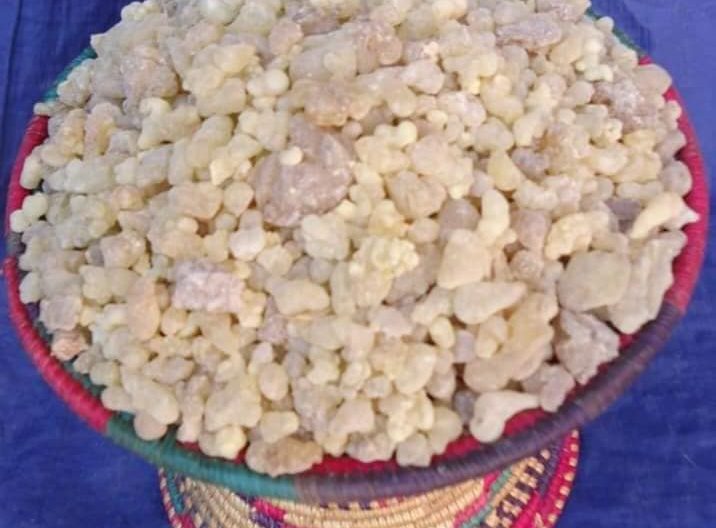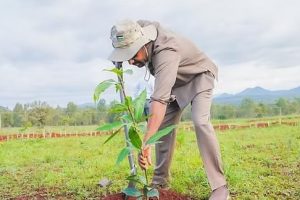
BY DARGIE KAHSAY
Few decades ago Ethiopia’s forest coverage had declined to only 3% with an alarming rate of deforestation. Unmanageable expansions of grazing lands, population growth, rapid urbanization and illegal deforestation and other factors were causes for the decline of the country’s forest coverage. The loss in forest coverage exposes the country for recurrent droughts and drought-driven famine and desertification became a threat for the country.
In addition to these factors, the continued deforestation and the low coverage of the forest sector in the previous years, Ethiopia’s benefit from the forest sector to generate income for its economy was low. Due to these reasons and other basic factors, Ethiopia’s benefit from the forest sector remains undeveloped and rare. The sector was not seen as an income generation, except in few furniture and other limited activities.
Understanding the continued degradation, deforestation and fast expansion of desertification, Ethiopia gives due focus to increase the forest coverage of the country through reforestation, forest area protection and other environmental conservation activities some years back. By capitalizing the annual plantation efforts, since 2019 Ethiopia launched a National Green Legacy initiative which helped to plant over 25 billion seedlings.
The past years plantation efforts helps the country to increase its forest coverage to 17.2% until the end of 2021, Ethiopian Forestry Development Deputy Director said. Ethiopia is working tirelessly to increase its forest coverage to 30% within ten years. Parallel to investing on the development of the forest coverage for the purpose of combating desertification and climate change through reforestation, Ethiopia is widening the economic gains from the forest sector by increasing the coverage.
The current forest development investment of Ethiopia aims both at increasing the forest coverage and developing the economic benefits from the sector. The forest sector, now in Ethiopia, is becoming one sector of employment creation, an investment to substitute importing forestry products and as income generating from exporting forestry products without affecting the natural coverage. In addition to keeping the natural dense forests, aiming at economization of the forest sector, Ethiopia is investing in bamboo, coffee, mango, banana and other fruit plants during its Green Legacy initiative and already started export of mango and other forest products.
Similarly, by keeping the natural dense forests, Ethiopia is widening its income generation from the forest sector by investing on Incense, gum Arabic and incense sticks products both for local and export market purpose. A union in Western Gonder Zone of Amhara state told ENA that it secures over 40 million birr by providing Incense products to the local market during the concluded budget year. Incense and gum are among the common products produced from the naturally protected forest areas in the zone.
According to ENA, the Western Gonder Zone has over 357 thousand hectares of land covered by Incense forest with a capacity of producing over 40 thousand quintals of product per year. Tewodros Natural Resource Development and Market Union found in West Gonder Zone stated that from Incense, produced by protecting natural forests, it secures over 40 million birr during the 2021/22 budget year.
Union’s head Kindu Worku stated the union secured the 40 million birr income by producing over two thousand quintals of Incense produced from the naturally protected forest area. The head added that 14 cooperatives are found under the umbrella of the union investing on the production and marketing of Incense and similar products.
Kindu further stated that an additional 800 quintals of Incense product is on hand to provide to the market with an expected price of 17 million birr. The product, according to Kindu, was secured from a forest area of 40 thousand hectares of dense forest given for the cooperatives for producing Incense purpose. Additional 18 Natural Resource Development and Marketing cooperatives are also on the way to join the sector, he added.
West Gonder Zone Forest and Environmental Protection division Team Leader Habtamu Adgo on his part stated that the 32 cooperatives are established in the zone with five thousand members with the aim of producing Incense product by caring and protecting the natural forest. Habtamu reiterated that “over 110 thousand hectares of forest area is provided to the cooperatives to carry and benefit from it” adding from the concluded budget year’s market of Incense in the zone, government secures around seven million birr which is helpful to invest in the natural protection.
According to the Team Leader, for the coming year, preparations are underway to start seedling preparation at the nursery level to plant trees for Incense production purpose, as reported by ENA. The Incense, gum-Arabic and Incense Sticks have a huge market potential in Ethiopia’s local market. Using this opportunity, unions and cooperatives are benefiting from investing in the sector.
On the other hand, Ethiopian Agricultural Business Corporation (EABC) announced recently that it has secured over 837 thousands of US Dollars from export of Incense and gum-Arabic during the 2021/22 budget year. According to the information from the EABC, during the past seven years, Ethiopia has earned 13.7 million US Dollars from the export of forest products like Incense and gum-Arabic, adding that the country secures over 79 million birr from the market of these products.
The Corporation in early August announced that by exporting over 505 quintals of Incense and game-Arabic, Ethiopia has secured over 837 thousands of Dollars during the already concluded budget year. According to EABC, the destination market of the export was Europe, Asia and African countries.
In addition, the local market is also a huge potential for these products. Incense, Myrrh, and gum-Arabic, among others are providing to the local market mainly to producers of candy, perfume and Incense-stick.
Ethiopian Improved Seed and Forest Products Provision head with the Corporation, Zenebe Woldesialssie said that during the budget year, the plan was to earn 1.4 million USD from this sector adding contraband and instability in the production areas affected the plan. For the 2022/23 budget year, with the hope of peace restored in the production areas, the corporation plans to earn one million USD from the export of the sector by exporting over two thousand quintals of Incense and game-Arabic.
According to Zenebe these forest products are mainly found in lowland areas of Tigray, Amhara, Benishangul-Gumuz, Oromia and Somali states. Since 2015, during the past seven years, by exporting over 30 thousands quintals of forest products to the international market, the corporation has secured over 13.79 million USD. In addition to the local market, during the past seven years, by providing over 24 thousand quintals of Incense, gum-Arabic, Myrrh and other products, it earned over 79 million birr.
From the total export of these products, 90 percent of the destination markets, according to the corporation are China, Dubai, German, USA, Bulgaria, Greek, Tunisia, Vietnam, Yemen and Holland. These forest products are highly demanded for the production of pharmaceuticals, textile, food, beverage, cosmetics, paints and others.
THE ETHIOPIAN HERALD TUESDAY 30 AUGUST 2022





